WOBBLIES ON THE WATERFRONT
THE WORKING CLASS IN AMERICAN HISTORY
Editorial Advisors
James R. Barrett
Alice Kessler-Harris
Nelson Lichtenstein
David Montgomery
A list of books in the series appears at the end of this book.
PETER COLE
Wobblies on the Waterfront
INTERRACIAL UNIONISM IN
PROGRESSIVE-ERA PHILADELPHIA
UNIVERSITY OF ILLINOIS PRESS
URBANA AND CHICAGO
2007 by the Board of Trustees of the University of Illinois
All rights reserved
Manufactured in the United States of America
C 5 4 3 2 1

This book is printed on acid-free paper.
Library of Congress Cataloging-in-Publication Data
Cole, Peter, 1969
Wobblies on the waterfront : interracial unionism in progressive-era Philadelphia / Peter Cole.
p. cm. (The working class in American history)
Includes bibliographical references and index.
ISBN 978-0-252-03186-1 (cloth : alk. paper)
1. Industrial Workers of the WorldHistory.
2. StevedoresLabor
unionsPennsylvaniaPhiladelphiaHistory.
3. Labor unionsSocial aspectsPennsylvania
PhiladelphiaHistory.
4. Philadelphia (Pa.)Race relationsHistory.
I. Title.
HD 8055. I 5 C 63 2007
331.88089'0097481dc22 2007005059
Contents
______________________________________________
Abbreviations
______________________________________________
ALU | American Longshoremens Union |
BLMOHP | Blacks in the Labor Movement Oral History Project |
CIO | Congress of Industrial Organizations |
GEB | General Executive Board |
ILA | International Longshoremens Association |
ISU | International Seamens Union |
IWW | Industrial Workers of the World |
LDOHP | Labor on the Delaware Oral History Project |
MTW | Marine Transport Workers |
ONI | Office of Naval Intelligence |
UNIA | Universal Negro Improvement Association |
USSB | United States Shipping Board |
Acknowledgments
______________________________________________
Though we historians are encouraged to view the past as a process that evolves over the longue dure, I confess that I never imagined how long this project would take! Over the past decade, I have been fortunate and am grateful that I have so many people to thank for helping me make this book a reality. Alas, there are simply too many to name.
The numerous institutions where I conducted research must be noted. No single cache of records exists, so I navigated collections across the land. In Philadelphia, the Independence Seaport Museum, Free Library, Urban Archives at Temple University, and Pennsylvania Historical Society proved invaluable. In Washington, D.C., I spent many months in the unsurpassed collections of the Library of Congress and at National Archives branches downtown and in Suitland and College Park, Maryland. Howard Universitys Moorland-Spingarn Library is home to a few of those proverbial golden nuggets that historians always dream about. In New York City, the excellent Tamiment Institute Library at New York University and collections at the New York Public Library proved useful. Of course, countless labor historians owe debts of gratitude to the Walter P. Reuther Library at Wayne State University in Detroit, and I am no different, though I must be one of the few researchers to have spent a week sleeping at a Catholic old age home in the city. Both Ann Arbors Labadie Collection and Madisons State Historical Society of Wisconsin are pleasures to do research at, as is the Chicago Historical Society.
I have had conversations, in person and via e-mail, with literally dozens of fellow historians, scholars, and activists who care about U.S. history, race relations, the labor movement, Philadelphia, maritime history, and the IWW. Perhaps we are not quite the beloved community but there truly is a deeply caring group of human beings who support scholarly research, and I am proud to be a part of such a fellowship. I want nothing more than to thank them all, but would be remiss if I did not single out a few. Jim Barrett has read my manuscript more times than he would care to, no doubt, and probably only I have spent more time with it. I envision Jim as the consummate editor. David Roediger, Joe McCartin, Eric Arnesen, Bruce Nelson, and Marcus Rediker each have provided sage advice and/or read portions of my work. Various current members of the IWW also have proved quite supportive. I only wish I could have actually talked to a member of Local 8; the closest I got was Ellen Doree Rosen, who, alas, does not remember her father, though our conversation brought me closer to him and the rest of Philadelphias longshoremen than otherwise would have been possible.
In my years at Western Illinois University, I received a faculty summer stipend to fund a research trip. Even more important, I deeply appreciate the emotional support of my colleagues in and outside of my department. You folks have made Macomb feel like home, even if there arent any mountains in the land of Lincoln.
What can I say? I am blessed with tremendous friends too numerous to name but who have provided endless support. You make life worth living. An extra shout out to my cousin, brother, and mother. My father crossed the bar before this project was finished, but if there is a heaven he is there smiling a big, toothy grin. To him, I owe my love of history and humanity.
WOBBLIES ON THE WATERFRONT
Introduction: In Search of Local 8
______________________________________________
One of the IWWs favorite slogans was All for one and one for all. I havent heard that slogan used as much as I did with the IWW. It was true then, and each day I live I see the truth of it more and more.
James Fair, Philadelphia Inquirer, April 6, 1980, Today, 4
Jake had just gotten a job unloading rotting pineapples. Most of Jakes coworkers were black, along with a few white men who were not regulars on the New York City docks. Although told to stay inside the piers gates for the entire shift, Jake went out for lunch anyway. As soon as he walked off the pier, a white man approached Jake and started talking. The white man belonged to the union that had struck the pier and wanted Jake to join his union. Jake declined.
Nope, I wont scab, but I aint a joiner kind of a fellah, said Jake. I aint no white folks nigger and I aint no poah whites fool. When I longshored in Philly I was a good union man. But when I made New York I done finds out that they give the colored mens the worser piers and holds the besn a them foh the Irishmen. No pardner, keep you card. I take the best I kn get as I goes mah way. But I tells you, things aint none at all lovely between white and black in this heah Gawds own country.

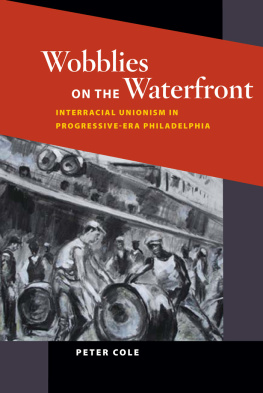
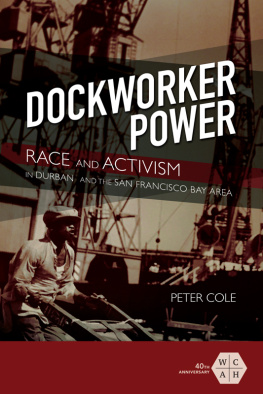
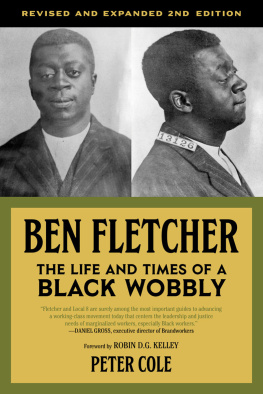
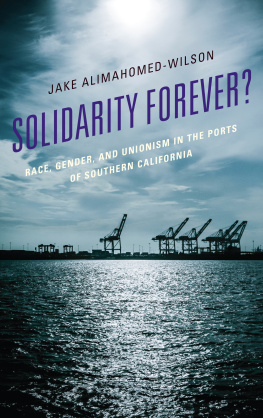

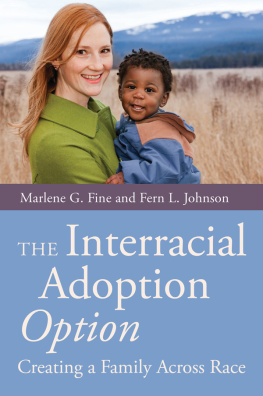
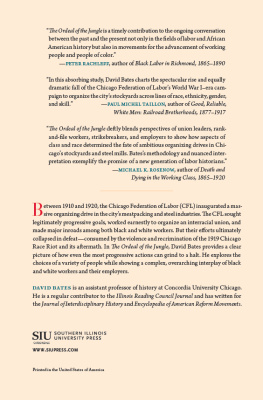
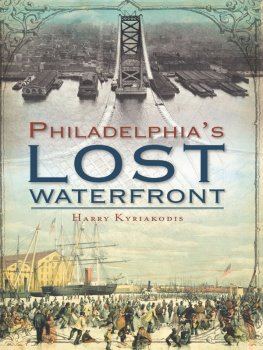
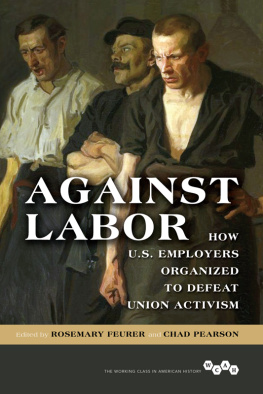
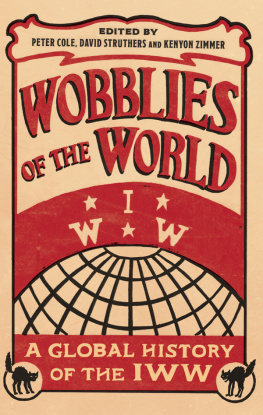
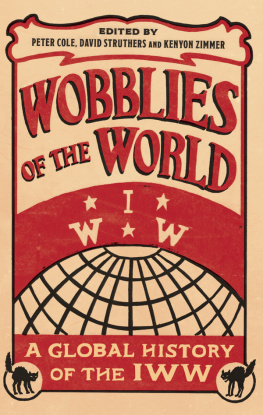

 This book is printed on acid-free paper.
This book is printed on acid-free paper.